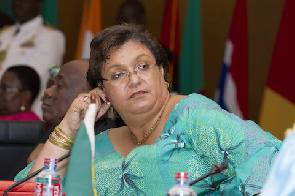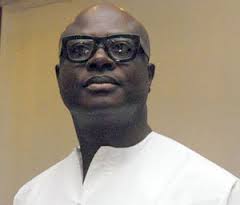 The Ghana Private Road Transport Union (GPRTU) has indicated it will only consider a possibility of reducing fares if petroleum prices go down by fifty percent.
The Ghana Private Road Transport Union (GPRTU) has indicated it will only consider a possibility of reducing fares if petroleum prices go down by fifty percent.
This was made known by the Greater Accra Region Chairman of the Ghana Private Road Transport Union (GPRTU), Robert Sarba answering questions on the TV3 news.
Government through the National Petroleum Authority (NPA) has announced a ten percent average reduction in prices of all petroleum products at the pumps except for premix fuel.
The reduction follows intense pressure from the public and notable interest groups for prices to be reviewed to match the drastic fall in crude prices on the world market which has dropped to a record low of 67 dollars per barrel.
Government had earlier refused to reduce the price of fuel at the pumps, arguing that the NPA needed to raise funds to settle its debts to the Bulk Oil Distribution Companies (BDCs).
The public expectation was to feel the respite in commercial transport fares with its rippling effect on prices of local commodities and food stuff.
However it appears the GPRTU is singing the same tune the NPA sang for which some drivers went on demonstration to get the petroleum prices reduced.
Speaking on TV3 News at ten, the Greater Accra Region chairman of the GPRTU Robert Sarba stated emphatically that his members made several losses and had borrowed from Savings and Loans Companies and Microfinance
Companies as a result of the high cost of fuel to keep their businesses running.
This decrease according to him, had therefore created an avenue for the drivers to use any windfall profits to pay off their debts and make up for all the losses they incurred.
He also outlined that prices of tires, spare parts, vehicles and other lubricants which forms part of their cost of operations had also not reduced on the market.
He went on to add that drivers also paid electricity bills, fed their families and paid hospital bills.
“Do you think all these people will also reduce their prices?” he questioned.
Meanwhile almost a year ago on the 16th of January 2014, Mr. Robert Sarba on the same platform had insisted that the GPRTU had no choice than to pass on a 6% increase of petrol prices to the consumer.
Where what was good for the goose became bad for the gander, remains to be answered by the GPRTU.
Another argument the GPRTU eloquently led was for government to strictly stick to the automatic adjustment formula.
However with the latest posturing of the GPRTU, one will only hope that it doesn’t borrow another explanation from the NPA when consumers demand that they stick to that formula that was set up by the Ghana road transport coordinating council GRTCC for fare adjustments.
This formula we are made to understand, was scientifically established by the transport unions and the transport ministry.
Just like the automatic adjustment formula, it takes into account, any fuel price adjustments as well as any other overhead costs and variables of the transport business to come out with equitable transport fares.
Whether ten percent reduction in fuel prices, will not yield any decrease in fares will be another debate the larger public will be engaging the Transport Ministry, the GRTCC and its constituents in the coming days.
The Public Relations Officer of the National Petroleum Authority, who also spoke on the news, insisted the NPA had done Ghanaians as much as good as to reduce prices by ten percent.
Borrowing from a quote from Mahatma Gandhi, Mr. Yaro Kasambata told critics who felt the authority could have done better, “the public would always say ten percent is not significant but it is important to do something albeit insignificant than do nothing.”
He indicated however that the NPA’s projections about clearing all debts it owes the Bulk Oil Distribution Companies by February ending, could be thrown out of gear for a further date with the ten percent reduction in petroleum prices.
He would only hope that the price of crude oil on the international market and the quantity of demand of fuel of the country remains averagely constant in the coming months.
Government has paid some two hundred million of the over four hundred million dollars owed BDCs as per the latest updates of the country’s indebtedness to bulk oil distribution companies.





